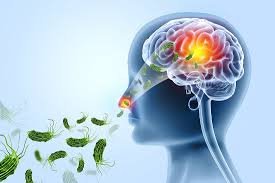Thiruvananthapuram: In a bold step to combat the alarming rise of Amoebic Meningoencephalitis (AME) — a rare but deadly “brain-eating” infection — Kerala is turning to artificial intelligence (AI) and advanced testing technologies to strengthen early detection and prevention measures.
Health experts and researchers have urged the state government to develop AI-powered diagnostic tools and a standardized testing protocol to identify the presence of free-living amoebae such as Naegleria fowleri in water sources and patient samples. The disease, which progresses rapidly and is often fatal, has sparked concern after multiple confirmed cases across Kerala.
The state’s health department has already begun setting up molecular testing labs and drafting scientific guidelines for AME prevention, diagnosis, and treatment. Authorities also plan to implement AI-based surveillance systems to monitor and map high-risk water bodies, particularly in districts like Kozhikode, where several cases have been reported.
Experts say early detection is key, as AME symptoms often mimic those of bacterial meningitis, causing delays in life-saving treatment. The proposed use of AI can help speed up lab analysis of cerebrospinal fluid and water samples, offering real-time results that could save lives.
Kerala’s Institute of Advanced Virology and public health labs are now being equipped to conduct real-time PCR and genomic sequencing to confirm infections swiftly. Meanwhile, field studies are underway to trace environmental risk factors and test stagnant water sources linked to the outbreak.
The move signals Kerala’s proactive approach to public health — blending technology, science, and surveillance — as it works to stay ahead of a rare but highly dangerous infection that has claimed lives across the state.




